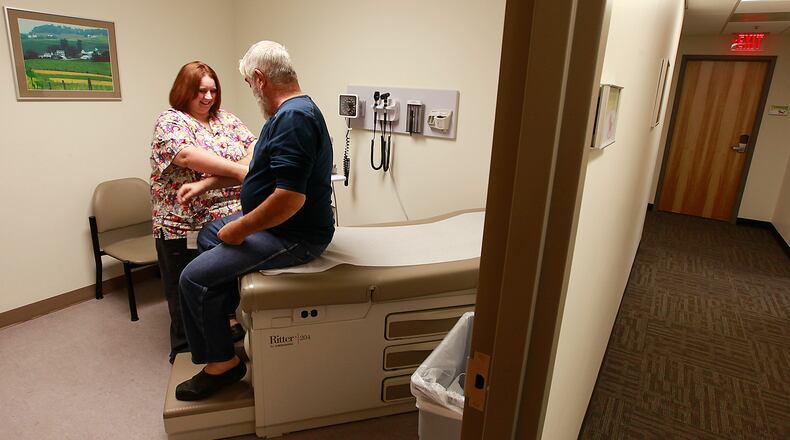“Our priority is to ensure each of the 3 million people the Ohio Department of Medicaid serves can receive the medical care they need to lead healthy and productive lives,” said Maureen Corcoran, director of Ohio Medicaid.
In 2019, the U.S. Centers for Medicare and Medicaid Services under the Trump administration approved Ohio’s request to make the changes. Those changes were put on pause due to the COVID-19 pandemic before the Biden administration withdrew support for the requirements in 2021.
“In Ohio, our goal is to empower all people to reach their full potential,” Gov. Mike DeWine said. “While this certainly includes providing critical assistance to people when they need it, we also have a responsibility to ensure as many Ohioans as possible are on a pathway to financial independence.”
People who are 55 or older, as well as people who have intensive physical or mental health care needs, also qualify for keeping their Medicaid coverage under the expansion without the work, schooling, training or treatment requirement.
“If they’re able to do some type of work, to move into employment, other Ohioans shouldn’t pay for them if they’re able-bodied,” said State Senator Steve Huffman, R-Tipp City.
Increased administrative work and and a lack of evidence over the effectiveness of work requirements are some of the criticisms coming from those who are not in favor of Ohio implementing those changes.
“Work requirements do not make a more effective or affordable Medicaid system, and making these changes to our system at this time may add flames to the already struggling landscape,” said Kathryn Poe, health and budget researcher at Policy Matters Ohio, in the think tank’s public comment to the Ohio Medicaid on this proposal.
Ohio Medicaid estimates there will be 769,585 expansion enrollees in 2026 and approximately 61,826 people will lose their coverage due to this work requirement.
Under the proposed requirement, there will be no regular reporting by enrollees, according to Ohio Medicaid. Some of the data that will be used to determine work, schooling or disability status will include:
- Individuals with household earned income at or above 30% of the federal poverty level will be presumed to be employed.
- Individuals who have applied for or are enrolled in another program that has disability as a basis for enrollment will be presumed to have intensive physical or mental health status.
- Incarcerated individuals will be exempt from the status requirements and will remain enrolled until their release.
- Individuals who qualify under another eligibility category will be exempt.
For those whom Ohio cannot verify eligibility with data available to the state, Ohio will employ a third-party data vendor to verify the basic eligibility requirements using external data sources, according to Ohio Medicaid. Enrollees will have the opportunity to confirm or dispute the data provided to county caseworkers.
Ohio will be requesting federal match for the cost of the third-party data vendor. Cost for such a vendor have not been determined, the state says.
“By implementing a fair work requirement for members, we are promoting economic self-sufficiency, connecting people with the resources they need, while also putting them on the path toward financial independence and long-term success,” Corcoran said.
Working with other state agencies, Ohio Medicaid can provide access to health care for Ohioans and help them find employment, Corcoran said.
Having employment has a connection to improved health, DeWine said. He referenced OhioMeansJobs.com, which has more than 160,000 jobs posted online.
“A work requirement will help connect more people with great jobs like these ― promoting self-sufficiency while also improving the wellbeing of our workforce,” DeWine said.
How to comment
All comments must be received by 5 p.m. on Tuesday, Jan. 21. Public Comment can be provided by email to GroupVIII@medicaid.ohio.gov or by mail. Letters can be addressed to Group VIII 1115 Waiver, Bureau of Health Plan Policy, Ohio Department of Medicaid, 50 W. Town St, 5th Floor, Columbus, OH 43215.
About the Author

